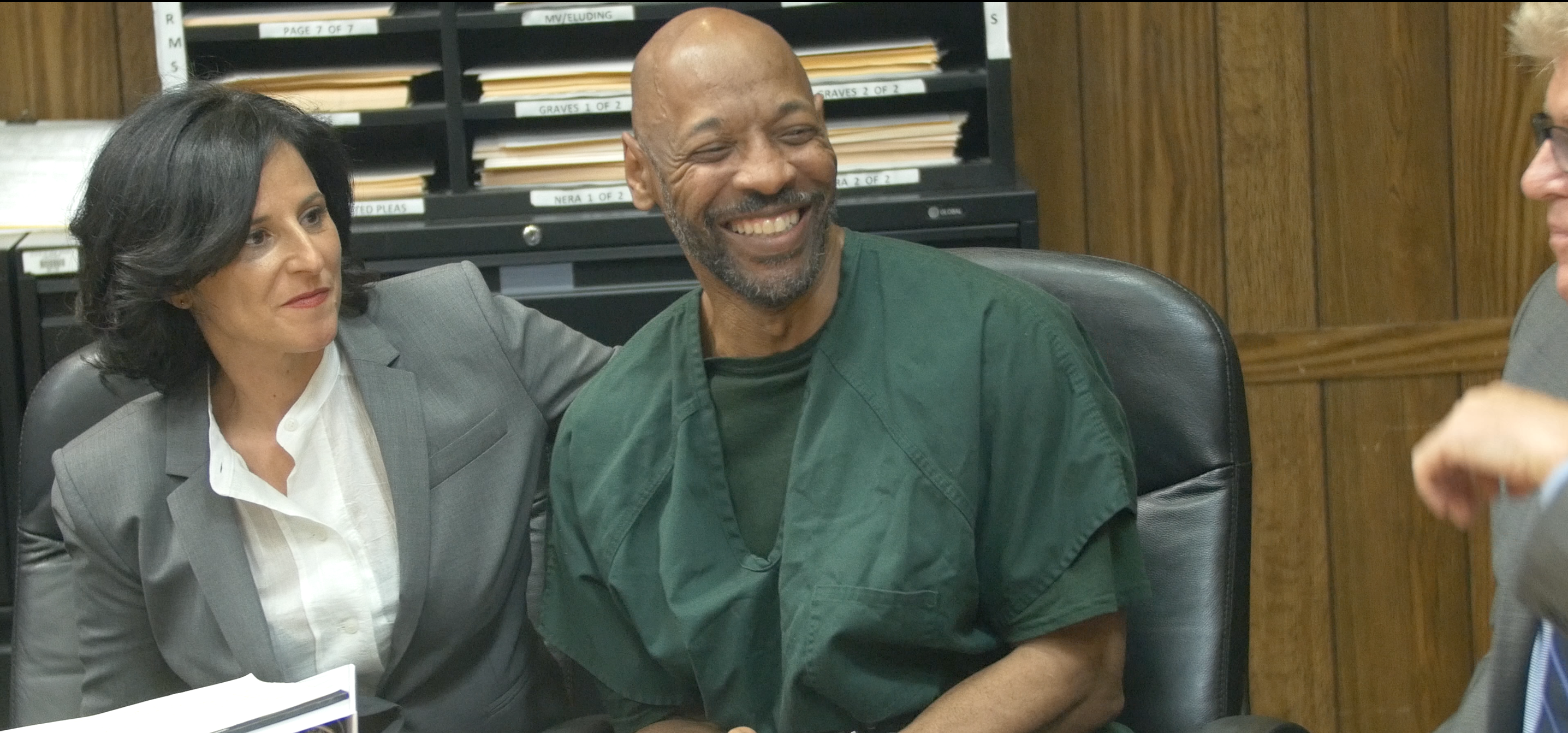New Jersey Court Vacates 1996 Murder Convictions Based on DNA Identifying Another Suspect
09.15.17 By Innocence Staff
(Paterson, NJ – September 15, 2017) Today, a New Jersey Superior Court Judge vacated the 1996 felony murder and robbery convictions of Eric Kelley and Ralph Lee based on DNA evidence identifying another suspect. It is now up to prosecutors to decide whether they will dismiss charges or retry the case.
“With such compelling DNA evidence demonstrating Mr. Kelley and Mr. Lee’s innocence and pointing to the true assailant most prosecutors would have moved to overturn these convictions long ago,” said Vanessa Potkin, Post-Conviction Litigation Director at the Innocence Project. “We are grateful for the court’s decision, which came after a year of hearing new evidence and argument and careful deliberation.”
Kelley, represented by the Innocence Project, and Lee, represented by Centurion Ministries, were convicted of the 1993 murder of Tito Merino based largely on contradictory statements they made to police after the police took them into custody. At the Paterson detective bureau, the two were interrogated separately for several hours. Kelley, who suffers from significant cognitive impairments because of a brain injury from a car accident and has difficulties processing information, was interrogated first and allegedly admitted to the crime.
Detectives admitted that they fed the information supplied by Kelley when interrogating Lee. The interrogations were not recorded and there are no notes of what occurred. The only evidence of the confessions are typewritten statements officers prepared that were signed by Kelley and Lee. Kelley allegedly told police where the knife used in the murder was hidden and where stolen property was fenced. However, the police were not able to corroborate the claims, and the purported confessions were contradicted by the crime scene evidence.
Prior to their arrests, police were searching for one suspect in the murder of Merino, who was stabbed to death during the robbery of the Paterson video store where he worked. A green and purple plaid baseball hat that did not belong to anyone in the store and was not present prior to the murder was recovered near the victim’s body. Police submitted it for DNA testing believing it could help identify the killer, but DNA testing wasn’t as advanced then and the testing was inconclusive.
The court ordered retesting of the hat in October 2010 over the prosecutor’s opposition. Male DNA was identified, excluding Kelley and Lee. The profile was entered into the FBI’s DNA database of convicted felons and matched to a man who matched to the age and physical description of the person a witness observed in the store around the time of the murder. Just three months prior to the crime, this man had been released from prison after serving three years for a similar knifepoint robbery of a nearby store.
Lawyers for Kelley and Lee presented witnesses at the earlier hearing who testified about the false confessions, a leading cause of wrongful convictions, contributing to more than 25 percent of the 351 DNA exonerations nationwide. A forensic psychologist evaluated Kelley and determined that he is “more suggestible than approximately 98 percent of the normal population,” making him vulnerable for making a false confession during custodial interrogation. A former detective who now specializes in police interrogations identified faults in the manner in which the men were questioned and pointed out discrepancies, contradictions and the lack of corroboration in the mens’ statements.
In reversing the convictions today, the court said that “this is probably one of the best examples of tunnel vision one could imagine.” The court also addressed the false confessions, noting “During the trials and this motion, the State has relied heavily on the statements given by the defendants when they were initially arrested. However, history has shown many instances where false confessions are given and DNA has proven the defendant or defendants not guilty notwithstanding a confession.”
Reacting to the decision, Potkin added, “We now know that the primary evidence used to convict Mr. Kelley and Mr. Lee is unreliable and objective scientific evidence points to their innocence. We hope that the prosecutor’s office will move quickly to dismiss the charges and finally initiate an investigation into the person whose DNA was found at the crime scene.”
Mr. Kelley remains incarcerated, but the Innocence Project will be making a bail application on his behalf in the coming days. Meanwhile, the prosecution must now decide whether to dismiss the indictment or retry the case.
Leave a Reply
Thank you for visiting us. You can learn more about how we consider cases here. Please avoid sharing any personal information in the comments below and join us in making this a hate-speech free and safe space for everyone.
September 26, 2017 at 7:52 pm
September 23, 2017 at 8:56 pm
There is so much blather of crowded prisons. Don’t know if it was false news or not, but I read that 10% of the people in prison are innocent. Seems like it would be to everyone’s advantage to get those people out so the government wouldn’t have to pay for their unnecessary incarceration. And yet people can be cleared and the prosecution makes those innocent people stay in prison. Seems like they can’t admit they are wrong. Meanwhile the prisoner pays and the American people pay. Glad to hear Mr. Lee and Mr. Kelly will soon go home. While we are on the subject of money, I hope they are compensated for every year they were in there..

So so happy for these guys but so unforunate that they had to go thru this situation. The justice System is not fair, my nephew was convicted of something he didnt do and the court didnt let him prove thaf he was innocent and he has a 45 year sentence and the time doesnt fit the crime